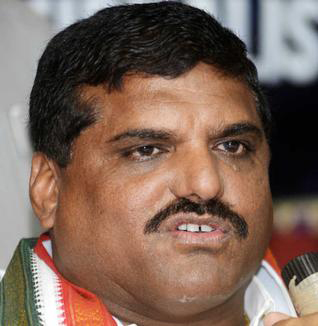
Vizianagaram, November 4: The wedding of Anusha, daughter of Andhra Pradesh Transport Minister and state PCC chief Botsa Satyanarayana’s daughter, Anusha, at Vizianagaram, in the backward north coastal region on Friday evening has evoked a sense of awe and outrage in equal measure.
If the pompous display of wealth floored the guests at the gala event, the open and flagrant misuse of official machinery sent the critics fuming. The wedding had all the trappings of an extravaganza with the main dais, decorated with imported flowers, costing an estimated Rs 1 crore.
Anusha, a medical student, tied the knot with the scion of a realtor group, Somi. A leading art director from the Telugu film industry was roped in to design the pandal.
The district administration was virtually at the service of the minister with nearly 700 constables, 35 DSPs and 120 SHOs being deployed to ensure a smooth affair.
What raised eyebrows in political circles was the order issued by the Transport Department to requisition 300 private taxis to ferry men and material as part of the wedding preparations. “This is gross misuse of official machinery. Action should be taken against the minister for engaging local officials for personal work and diverting public money for the wedding,” said opposition TDP leader Srikanth Reddy.
At a time when the image of the Congress is at its lowest ebb, the PCC chief appears to have added to its woes by splurging several crores on his daughter’s wedding.
Andhra Pradesh Governor E S L Narasimhan, his Tamil Nadu counterpart K Rosaiah and state Chief Minister Kiran Kumar Reddy, Central and state ministers, MPs, legislators and leaders of various political parties attended the event. Around 80,000 guests were invited to the grand bash. It was alleged that the state Ministers, who were put up at a star hotel in Visakhapatnam, held review meetings to make the trip official. “It is clear that the so-called review meetings were specifically held to fund travel expenses,” said a retired civil servant.
Whistle blowers shot off letters to the chief minister, pointing out that Satyanarayana had resorted to gross misuse of public authority. “Andhra Pradesh is facing sever power shortage, but the ruling party leaders are indulging in extravagance at the cost of the exchequer. People are aghast at the misuse of authority to satisfy the ego of a few self-serving leaders,” they said. Satyanarayana is no stranger to controversies.





Comments
Add new comment